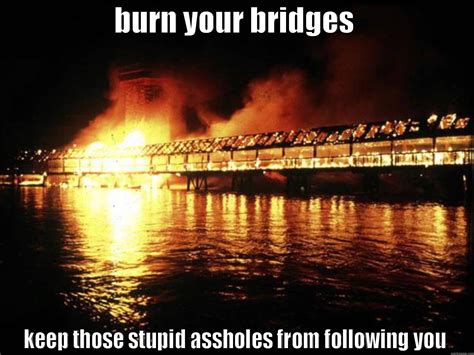
Ultranationist Israelis unfurled a massive Israeli flag at the Western Wall in Jerusalem on Wednesday, marking Jerusalem Day, an event that commemorates Israel’s capture of East Jerusalem in the 1967 Six-Day War. The display, considered provocative by some, took place amid heightened tensions and ongoing debate over the city’s status.
Thousands of Israelis, many from the national-religious camp, participated in Jerusalem Day events, culminating in a controversial march through the Old City. The annual march, often accompanied by displays of nationalism and anti-Arab chants, has long been a flashpoint in the Israeli-Palestinian conflict. This year’s event occurred against a backdrop of escalating violence in the region and heightened security measures. The unfurling of the giant flag at the Western Wall, a site holy to Jews, served as a powerful symbol of Israeli sovereignty over the city, further inflaming tensions.
Jerusalem Day celebrates what Israelis consider the reunification of Jerusalem, following the Six-Day War, when Israel captured East Jerusalem from Jordan. Palestinians, however, view East Jerusalem as the future capital of their state, and the annual celebrations are seen as a provocation and an assertion of Israeli control over disputed territory. The events surrounding Jerusalem Day often lead to clashes between Israelis and Palestinians, and this year was no exception, with reports of scuffles and arrests.
The unfurling of the giant flag at the Western Wall was organized by right-wing activist groups, who view Jerusalem as the undivided capital of Israel. The event was intended as a show of strength and a celebration of Israeli sovereignty. However, critics argue that such displays exacerbate tensions and undermine efforts to achieve a peaceful resolution to the Israeli-Palestinian conflict.
“We are here to celebrate Jerusalem, the eternal capital of Israel,” said one of the organizers, according to social media posts reviewed. “This flag is a symbol of our commitment to the city and our determination to defend it.”
The Jerusalem Day march, which followed the flag display, saw thousands of participants, many waving Israeli flags and chanting nationalist slogans. The march route traditionally takes participants through the Muslim Quarter of the Old City, a move that is seen as particularly provocative by Palestinians.
Police presence was heavy throughout the day, with security forces deployed to prevent clashes and maintain order. Despite the security measures, there were reports of isolated incidents of violence and confrontations between Israelis and Palestinians. Several arrests were made.
The international community has largely refrained from recognizing Jerusalem as Israel’s capital, with most countries maintaining their embassies in Tel Aviv. The status of Jerusalem remains one of the most contentious issues in the Israeli-Palestinian conflict, and there is no consensus on how to resolve the dispute. The U.S. decision in 2017 to recognize Jerusalem as Israel’s capital and move its embassy there was met with widespread condemnation from the international community.
The events of Jerusalem Day serve as a reminder of the deep divisions that exist in the city and the ongoing challenges to achieving a lasting peace in the region. The unfurling of the giant flag at the Western Wall, and the subsequent march through the Old City, underscore the competing claims and narratives surrounding Jerusalem, and the difficulties of finding a solution that is acceptable to both Israelis and Palestinians.
The display of the giant flag also sparked criticism from some Israeli politicians and commentators, who argued that such actions are counterproductive and undermine efforts to promote coexistence and understanding. They contend that while celebrating Jerusalem is important, it should be done in a way that is respectful of all residents of the city.
“While we celebrate our connection to Jerusalem, we must also be mindful of the sensitivities of others,” said one Israeli lawmaker. “These kinds of displays only serve to inflame tensions and make it more difficult to achieve a peaceful resolution to the conflict.”
The events of Jerusalem Day are likely to further complicate efforts to revive peace negotiations between Israelis and Palestinians. The deep mistrust and animosity that exist between the two sides make it difficult to find common ground, and the annual celebrations in Jerusalem only serve to widen the divide.
The current Israeli government, which includes right-wing and religious nationalist parties, is unlikely to make concessions on the issue of Jerusalem. The government views Jerusalem as the undivided capital of Israel and is committed to maintaining its control over the entire city.
Palestinians, on the other hand, remain steadfast in their demand for East Jerusalem to be the capital of their future state. They view the Israeli presence in East Jerusalem as an occupation and are determined to end it.
The events of Jerusalem Day underscore the urgent need for a renewed effort to address the underlying issues that fuel the Israeli-Palestinian conflict. Without a comprehensive solution that addresses the status of Jerusalem and other key issues, the cycle of violence and recrimination is likely to continue.
The significance of the Western Wall also cannot be understated. As the holiest place where Jews can pray, the Western Wall holds immense religious and national significance for Israelis. Any display of sovereignty at this site carries significant weight and is carefully scrutinized by both Israelis and Palestinians. The decision to unfurl the giant flag at this location was a deliberate choice, intended to send a clear message about Israeli control over Jerusalem.
The political context surrounding Jerusalem Day also plays a crucial role in shaping the events and reactions. The current Israeli government, led by Prime Minister Benjamin Netanyahu, is composed of a coalition of right-wing and religious parties that are deeply committed to maintaining Israeli control over Jerusalem. This political alignment has emboldened right-wing groups to stage provocative events, such as the flag display and the march through the Old City.
The international response to Jerusalem Day has been largely muted, with most countries reiterating their long-standing position that the status of Jerusalem should be determined through negotiations between Israelis and Palestinians. However, some countries have expressed concern about the potential for violence and have called on both sides to exercise restraint.
The European Union, for example, issued a statement urging both Israelis and Palestinians to avoid actions that could escalate tensions. The EU reiterated its support for a two-state solution, with Jerusalem serving as the future capital of both Israel and a Palestinian state.
The United Nations has also expressed concern about the situation in Jerusalem and has called for respect for the status quo at holy sites. The UN has repeatedly affirmed that East Jerusalem is occupied territory and that Israel’s annexation of the city is illegal under international law.
The events of Jerusalem Day highlight the complexities and challenges of resolving the Israeli-Palestinian conflict. The issue of Jerusalem is at the heart of the conflict, and there is no easy solution. Any attempt to address the issue must take into account the competing claims and narratives of both sides, as well as the religious and historical significance of the city.
The future of Jerusalem remains uncertain, and the events of Jerusalem Day serve as a reminder of the ongoing struggle over the city. The unfurling of the giant flag at the Western Wall, and the subsequent march through the Old City, underscore the deep divisions that exist in the city and the challenges of achieving a lasting peace.
The events of Jerusalem Day also serve as a platform for various political and ideological groups to express their views and agendas. Right-wing groups use the occasion to assert Israeli sovereignty over Jerusalem and to promote their vision of a unified and undivided capital. Left-wing groups and peace activists, on the other hand, use the occasion to protest the occupation and to call for a two-state solution.
The media coverage of Jerusalem Day also plays a significant role in shaping public opinion and influencing the political discourse. Israeli media tend to focus on the celebrations and the expressions of national pride, while international media tend to focus on the tensions and the potential for violence. Palestinian media, on the other hand, tend to portray the events as a provocation and a violation of Palestinian rights.
The events of Jerusalem Day also have implications for the broader regional dynamics. The Israeli-Palestinian conflict is a major source of instability in the Middle East, and any escalation of tensions in Jerusalem can have repercussions throughout the region. The events of Jerusalem Day can also affect relations between Israel and its Arab neighbors, as well as relations between Israel and the international community.
The events surrounding Jerusalem Day often serve as a barometer for the overall state of the Israeli-Palestinian conflict. Periods of heightened tension and violence in Jerusalem often coincide with periods of stagnation in the peace process. Conversely, periods of relative calm in Jerusalem can create an opportunity for renewed negotiations and progress towards a resolution of the conflict.
The unfurling of the giant flag at the Western Wall, and the subsequent march through the Old City, represent a continuation of the long-standing struggle over Jerusalem. The events of Jerusalem Day serve as a reminder of the deep divisions that exist in the city and the urgent need for a comprehensive solution that addresses the status of Jerusalem and other key issues.
The provocative nature of the Jerusalem Day march, particularly its passage through the Muslim Quarter, consistently draws condemnation. Critics argue that it deliberately seeks to disrupt Palestinian life and assert Israeli dominance in a way that is both insensitive and inflammatory. The heavy security presence, while intended to prevent violence, can also be seen as a form of collective punishment, restricting the movement and activities of Palestinian residents.
The impact of these events extends beyond the immediate physical confrontations. The constant cycle of provocation and response contributes to a climate of fear and mistrust, making it increasingly difficult to build bridges between Israelis and Palestinians. The erosion of trust further entrenches existing divisions and undermines efforts to promote coexistence and reconciliation.
The failure to address the underlying issues that fuel the conflict perpetuates a cycle of violence and recrimination. Without a genuine effort to address the grievances of both sides, including the status of Jerusalem, the occupation, and the right of return for Palestinian refugees, the conflict is likely to continue indefinitely. The international community has a responsibility to play a more active role in promoting a just and lasting peace, based on international law and respect for human rights.
The long-term consequences of the current situation in Jerusalem are dire. The continued expansion of Israeli settlements in East Jerusalem, the demolition of Palestinian homes, and the restrictions on Palestinian movement are all contributing to the gradual displacement of the Palestinian population. This process of “creeping annexation” threatens to extinguish any hope of a viable Palestinian state and to permanently alter the demographic character of the city.
The events of Jerusalem Day serve as a stark reminder of the urgent need for a renewed effort to address the Israeli-Palestinian conflict. The future of Jerusalem, and the future of the region, depends on finding a solution that is just, equitable, and sustainable. Without a commitment to dialogue, compromise, and respect for the rights of all, the cycle of violence and despair is likely to continue, with devastating consequences for both Israelis and Palestinians.
FAQ: Jerusalem Day and the Unfurling of the Giant Flag
1. What is Jerusalem Day?
Jerusalem Day is an Israeli national holiday commemorating the reunification of Jerusalem in 1967 during the Six-Day War. It marks the day Israeli forces captured East Jerusalem from Jordan. Israelis celebrate this day with parades, ceremonies, and other events. However, Palestinians view it as a day of mourning, marking the beginning of Israel’s occupation of East Jerusalem.
2. Why is the Jerusalem Day march controversial?
The Jerusalem Day march is controversial because it often involves thousands of Israeli nationalists, many of whom pass through the Muslim Quarter of the Old City, waving Israeli flags and chanting nationalist slogans. This is perceived as a provocation by Palestinians, who see East Jerusalem as the future capital of their state. The march has often led to clashes between Israelis and Palestinians, and it is seen as a symbol of Israeli dominance over the city. The choice of route, specifically through densely populated Palestinian areas, is viewed as an intentional act to assert control and disregard Palestinian sensitivities.
3. What is the significance of unfurling the giant Israeli flag at the Western Wall?
The Western Wall is the holiest place where Jews can pray, making it a site of immense religious and national significance for Israelis. Unfurling a giant Israeli flag there is a powerful symbol of Israeli sovereignty over Jerusalem. It is seen by some as a celebration of Israeli control and a reaffirmation of their claim to the entire city. However, Palestinians and others view it as a provocative act that disregards their claims to East Jerusalem. The act intentionally uses a religious and national symbol to assert dominance, further inflaming tensions.
4. What are the international community’s views on Jerusalem’s status?
The international community largely does not recognize Jerusalem as Israel’s capital. Most countries maintain their embassies in Tel Aviv. The United Nations considers East Jerusalem to be occupied territory and views Israel’s annexation of the city as illegal under international law. The international community generally supports a two-state solution, with Jerusalem serving as the future capital of both Israel and a Palestinian state. The U.S. decision in 2017 to recognize Jerusalem as Israel’s capital was met with widespread condemnation from the international community and signaled a departure from long-standing international consensus.
5. How do these events impact the Israeli-Palestinian conflict?
The events of Jerusalem Day, including the flag display and the march, exacerbate tensions and undermine efforts to achieve a peaceful resolution to the Israeli-Palestinian conflict. These events reinforce competing claims to Jerusalem and contribute to a climate of mistrust and animosity. They also complicate efforts to revive peace negotiations and make it more difficult to find common ground between Israelis and Palestinians. The actions are often seen as deliberate attempts to undermine Palestinian aspirations for statehood and to solidify Israeli control over the entire city, making a two-state solution increasingly difficult to achieve. The emotional and symbolic weight of Jerusalem makes any perceived slight or provocation particularly damaging to the already fragile relationship between the two sides.









